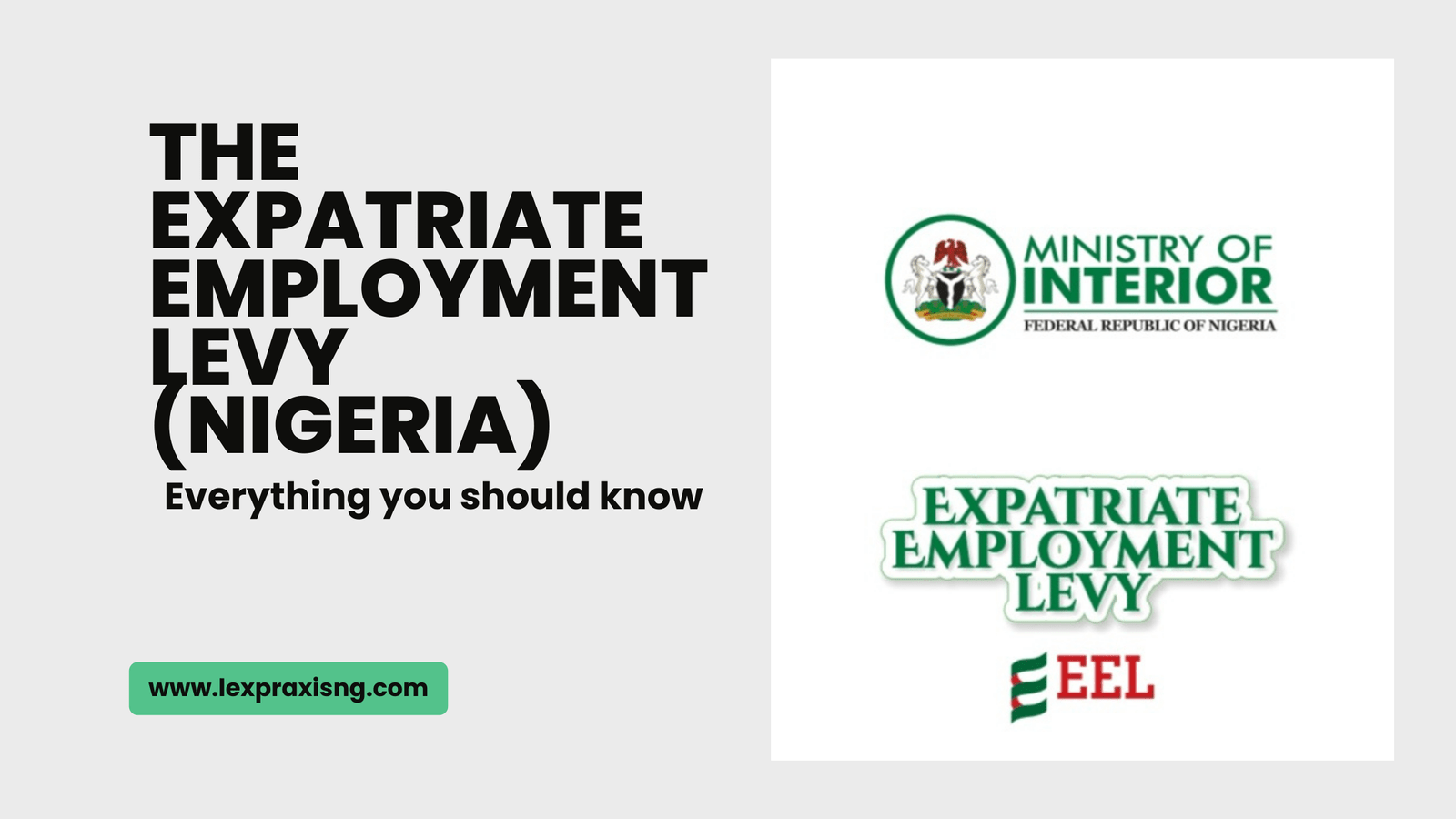On Tuesday, February 27th, 2024, the President and Commander-in-Chief of the Armed Forces of the Federal Republic of Nigeria launched the Expatriate Employment Levy (EEL). This levy was introduced to balance the benefits of expatriate employment with Nigeria’s local labour market and resources due to the increase in the imported workforce within the country.
The EEL will be implemented from Friday, 15th March 2024, while the last date of compliance is Monday, 15th April 2024.
This article will examine the new policy’s requirements and operations, as well as their overall impact on stakeholders.
WHAT IS THE EXPATRIATE EMPLOYMENT LEVY (EEL)
Employers who employ expatriate workers in Nigeria are required to pay an annual levy called the Expatriate Employment Levy (EEL). This levy is calculated based on the offshore earnings of expatriates working in Nigeria. It is worth noting that a proposal has been made to introduce an EEL card that will serve as proof of payment for the levy. This card, similar to a passport, will be mandatory for lawful entry into and exit from Nigeria.
WHO IS ELIGIBLE FOR THE EXPATRIATE EMPLOYMENT LEVY (EEL)
The following individuals and organizations are required to pay the Expatriate Employment Levy (EEL) in Nigeria:
1. Businesses of various sizes, including multinational corporations and small and medium-sized businesses (SMEs), that recruit expatriates to work for them.
2. Foreigners who are employed in Nigeria, including those who hold certain types of work permits, visas, and other temporary residency arrangements.
3. Industries that rely on expatriate labour, such as construction, agriculture, manufacturing, oil and gas, telecommunications, banking and finance, maritime and shipping, healthcare, etc., are also required to pay the EEL.
4. Expatriate workers who are employed for 183 days or more within a year.
5. An expatriate who is issued a work or residence permit, has their status changed from visitor to employee or has their employment contract renewed may also be required to pay the EEL.
6. In the case of a cross-border assignment or secondment where expatriates temporarily work in a foreign country, they are still required to pay the EEL if they occupy a quota position in a company operating in Nigeria.
7. Expatriates who have obtained temporary work permits to work in Nigeria on a seasonal or short-term basis and have spent 183 days or more in Nigeria within a year are also required to pay the EEL.
WHO IS EXEMPTED FROM THE EXPATRIATE EMPLOYMENT LEVY (EEL)
The following individuals are exempt from paying the EEL levy:
1. All staff members of diplomatic missions, government officials, and international agencies that are accredited to Nigeria.
2. Dependents of all categories of expatriates in Nigeria, except for those dependents who are confirmed to be engaged in employment while residing in Nigeria.
WHO FILES AND PAYS THE EXPATRIATE EMPLOYMENT LEVY (EEL)
Employers are responsible for reporting expatriate employment details and paying the levy to ensure compliance.
WHEN IS THE EXPATRIATE EMPLOYMENT LEVY (EEL) TO BE PAID
The levy is paid every year.
HOW MUCH IS THE EXPATRIATE EMPLOYMENT LEVY (EEL)
The Expatriate Employment Levy is a flat fee of $15,000 for directors and $10,000 for other categories of expatriates.
OFFENCES AND PENALTIES FOR NON-COMPLIANCE
Certain actions are considered an offence and attract sanctions. We will be considering some of the sanctions as provided in the handbook.
| S/N | OFFENCE | DETAILS | PENALTIES |
| 1 | Failure of a Corporate entity to file the EEL | Failure of a Corporate entity to file the EEL within 30 days | A fine of three million naira (N3,000,000) |
| 2. | Failure to register new employees within the stipulated time | Failure to register employees within thirty (30) days | A fine of three million naira (N3,000,000) |
| 3. | Submitting forged information in the EEL | Falsification of information on EEL | Liable to a fine of three million naira (N3,000,000) |
| 4. | Failure to renew EEL before the expiry date | Failure of a corporate entity to renew EEL within thirty (30) days | Liable to a fine of three million naira (N3,000,000) |
CONCLUSION
The announcement of the Expatriate Employment Levy has received mixed reactions. It’s interesting to note that this type of levy is not a new concept in the international scene. Countries like Singapore and Saudi Arabia have already implemented similar levies to manage the influx of expatriates in their territories.
As this is a recent policy, it’s difficult to predict the outcome of these reactions. However, we’ll keep a close eye on any updates that may arise.
If you need legal advice on starting a business in Nigeria as a foreigner or foreign organization, please feel free to reach out to us via email or through the Whatsapp icon on the lower right corner of this page. We’ll be happy to assist you.
